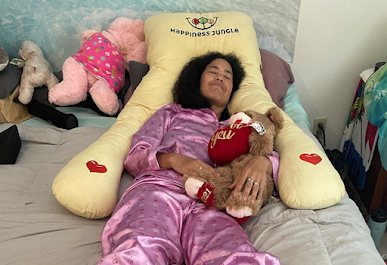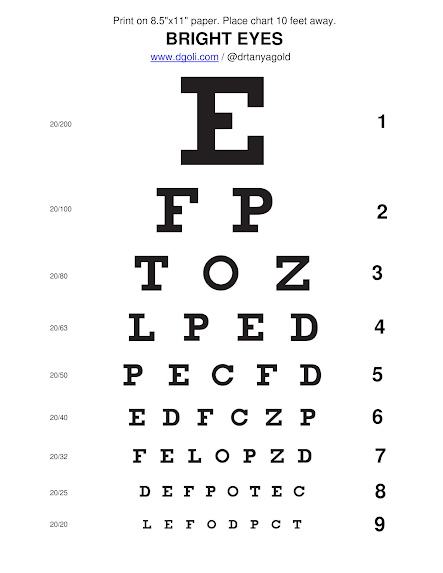How to Sleep Better Part 1 of 3
How to Sleep Better Part 1 of 3
Do you lie awake tossing and turning, staring at the ceiling,
or the alarm clock, hoping daylight will come? Are you frustrated that you must
wake up in a few hours and you haven’t slept enough? Do you get hot flashes or
get up to pee (or maybe you don’t make it) and can’t go back to sleep? That
sounds like my husband!
When the alarm clock goes off do you still feel tired?
The Benefits of Sleep are critical to repairing and
rebuilding the body. It’s necessary for a healthy immune system. In this blog I
will debunk a common myth about sleep, and in the next 2 parts, I will focus on
natural treatments and on how to tame a busy mind that has trouble slowing down!
According to the Sleep Foundation almost half of all
Americans feel sleepy during the day.[1]
I find many sleep disorders are rooted in stress and anxiety.
With that in mind, I recommend all my patients with chronic sleep disturbances,
to get a full work up, to rule out serious medical conditions, including PTSD,
sleep apnea, GERD, neuropathy, heart disease, hormonal imbalances (hot
flashes), pulmonary issues, incontinence, asthma, etc
1.Myth “I need my 8 hours!”
Fact: What you need is adequate rest. Winston Churchill slept
when he was tired. I know folks who power nap, sleep 6-7 hours a night or are
night owls and sleep during the day, who do just fine. This works well for
shift workers. Find what works for YOU. The most important part of all this is to
make sure you have adequate energy, and your body is functioning optimally. You
need quality sleep 💤, so you feel refreshed when you wake
up.
“Say good night to Insomnia,” is a great book depicting how
strong a role the mind plays in getting a good night’s rest. What do you tell
yourself about how well you sleep? Do you tell yourself or others how poor a
sleeper you are?
What if you changed your perspective and instead wisely
noted, “I’m in training for sleeping better?” Then practiced good sleep hygiene
(which we will discuss later).
Now the brain has positive instructions to induce sleep,
rather than suppress it.
I know insomniacs want to sleep, but sometimes unbeknownst to
them, they train themselves how not to sleep by lying awake in bed. It’s much
better to get out of bed if you’re not sleeping and do something relaxing if you’re
still tired, like meditate or do yoga, and just let your body go where it needs
to go.
If you’re stressed, you can practice deep breathing or
journal about the troubles while playing some soothing music. What I find
useful is asking myself, what can I do about it? If it’s nothing, I focus on
letting it go.
Teach your brain to RELAX, and it becomes easier.
Some common sleep deterrents
1.Kids- Especially as babies they may think nighttime is a
time to cry, stay wide awake, feed and PLAY. Make sure nothing is seriously
wrong, and I recommend hiring a sitter for the night or a good friend who’s a
night owl or ask a family member to watch them (so you can get your rest).
2. Caffeine- Remember the half-life is long, so even one cup
of coffee can still be in your system at nighttime. So, if you’re sensitive try
to limit caffeine 8-10 hours before bedtime i.e. after lunch.
3.Alcohol- I know many people who want their nightcap or
something to unwind with especially a nice glass of wine 🍷 after the kids go to sleep. Besides increasing one’s
risk for cancer[2]
(even with one half glass of wine daily) it can also decrease your REM (or
deep) sleep.
Please note I’m not saying you can’t have your cup of coffee
or glass of wine, however if you are sensitive (and have sleep issues and risk
factors for cancer) you may want to reduce the amount and frequency. Also
consider some healthier options like Teecino (herbal coffee which can be found
online and at Whole Foods) and some nonalcoholic beverages. I personally love
sleepy time tea or Magnesium Calm at bedtime.
For promoting falling asleep, I suggest listening to delta
wave music
https://youtu.be/GLCb3BCcRpk Delta waves are low
frequency brainwaves that are the dominant patterns of deep sleep, so as you
hear these sounds, your brain waves align with these patterns.
Much research shows the benefits of intense activity for
promoting deep sleep[3].
As a dedicated member of the Blackbelt Leadership Training program, I highly
recommend KMMA as a great rigorous workout. I am looking forward to Krav camp
this weekend and belt testing this week; I know I will sleep like a baby! 😊
Dr. Gold
is the proud owner of Dr. Gold’s Optimal Living
Institute and author of 7 Habits of Extremely Happy People. She
is a board-certified family medicine and holistic medical doctor and teaches
yoga and laughter yoga. Dr. Gold has been in practice for over 20 years.
Upcoming
Events with Dr. Gold’s Optimal Living Institute
For
10% OFF Use
PROMO CODE: KMMA10
|
Goat Yoga with Dr. Gold (Multiple Dates Starting Feb
20) Starting Sunday February 20 Held at The Dancing Goat Farm 12502 Maverick Court Tampa, FL
33626 |
Scan to Register at Eventbrite: |
|
Spa Day With Dr. Gold and Erica (Multiple Dates) Starting Sunday February 27 at 4:00 pm Held at Dr. Gold’s Optimal Living Institute 2901 W Busch Blvd, Suite 604 in Twin Lakes Office
Park Tampa, FL 33618 |
Scan to Register at Eventbrite: |
|
Register at Eventbrite |
|
|
|
|
Become Happy, Healthy and Strong!
1.
Patient focused – Dr. Gold is a compassionate listener and spends time with her patients (average appointment is 1 hour). Her goal is to treat the ROOT CAUSE of their problem(s) and get them well LONG TERM. Don’t take her word for it. Check out her testimonials on her website: DGoli.com
2.
Percentage of proceeds goes to Charity (Charities that have been donated to so far include Feeding America, UNICEF, The Alzheimer’s Foundation of America, The Crisis Center of Tampa Bay, The Humane Society, Big Brothers Big Sisters, Malala Fund (working for a world where all girls can learn)
3.
Environmentally conscious: Use real cups for water, plates and silverware and cloth napkins, all natural cleaning products and recycles (the office minimizes paper waste).
4.
Dr. Gold specializes in helping women over 40 to get stronger, healthier and happier. Often, they are busier than ever working, managing a household, being a caretaker, that their health needs get neglected. She helps them realize that to prioritize their own health, is to ensure that they can take better care of everyone else and feel so much Better!












Comments
Post a Comment